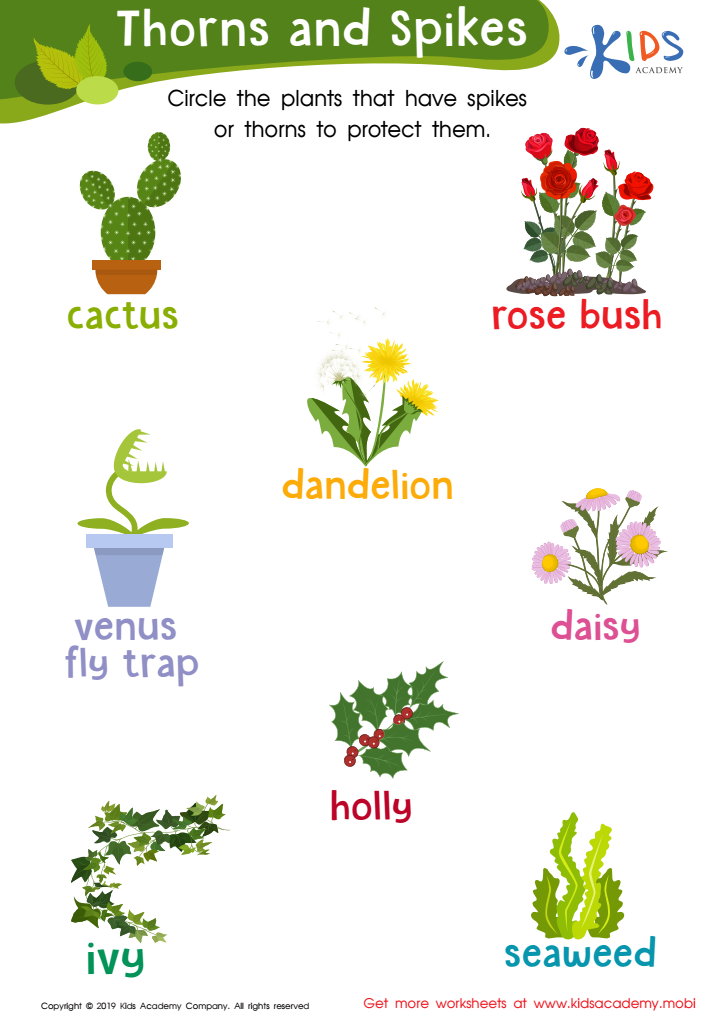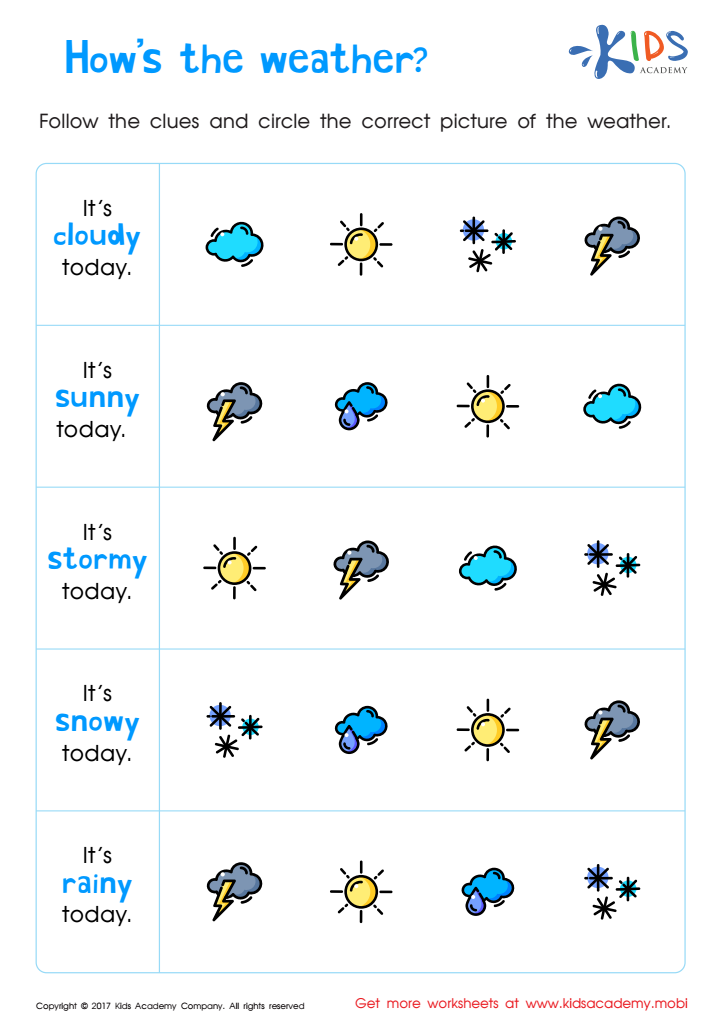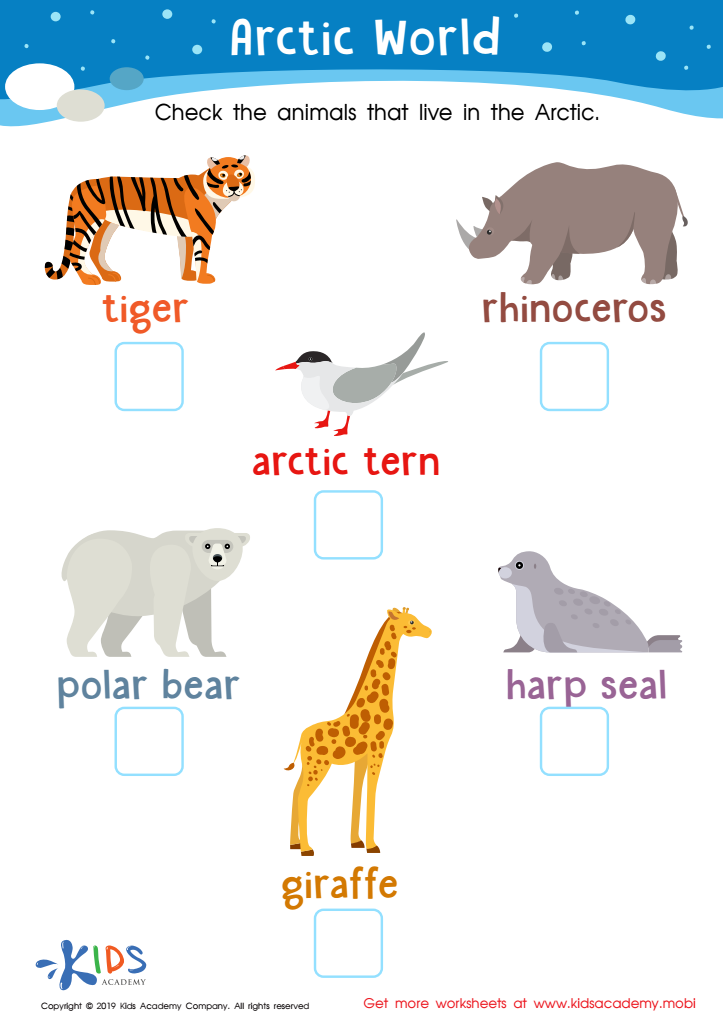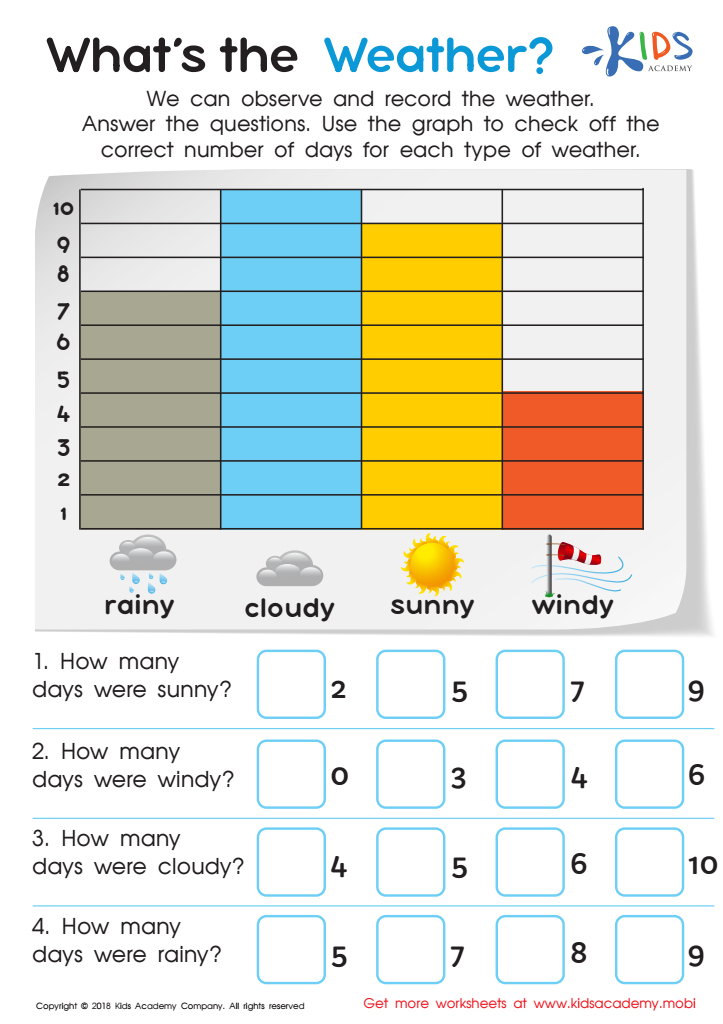Vocabulary expansion Normal Science Worksheets for Ages 3-4
4 filtered results
-
From - To
Unlock your child's curiosity and enhance their language skills with our Vocabulary Expansion Science Worksheets for ages 3-4. These engaging, age-appropriate printable worksheets introduce young learners to fundamental science concepts and rich vocabulary. Designed to foster critical thinking and language development, our activities are perfect for fueling early learners' curiosity while building a solid foundation in science. Watch as your child's vocabulary flourishes and their love for learning blossoms. These worksheets are ideal for both parents and early educators looking to incorporate valuable learning into everyday play. Start your child’s educational journey with KIDS Academy’s printable resources today!


Thorns and Spikes Worksheet


Hows the Weather Worksheet


Arctic World Worksheet


What's the Weather? Worksheet
Early childhood is a critical period for cognitive and language development. At ages 3-4, children's brains exhibit significant plasticity, making it an optimal time to enhance their vocabulary. Vocabulary expansion during this formative period has multiple short- and long-term benefits beneficial to both parents and teachers.
Firstly, a broad vocabulary acts as a foundational pillar for subsequent academic skills, including reading comprehension and writing proficiency. Research indicates that children with a richer vocabulary tend to excel academically, as they can better understand and communicate complex ideas.
In the context of Normal Science for this age group, introducing age-appropriate scientific terms introduces budding young scientists to foundational concepts, stimulating curiosity and critical thinking. Words like “observe,” “measure,” and “experiment” not only grow a child’s vocabulary but also instill a scientific mindset, promoting analytical skills.
Moreover, an expansive vocabulary enhances social-emotional development. Children who articulate their thoughts and emotions effectively are better equipped to navigate social interactions and solve conflicts.
Investing in vocabulary expansion equips children with the linguistic tools they need to explore and understand the world, setting the stage for lifelong learning and success, both academically and socially. Thus, parents and teachers should prioritize enriching young minds with a diverse and robust vocabulary.

 Assign to My Students
Assign to My Students















